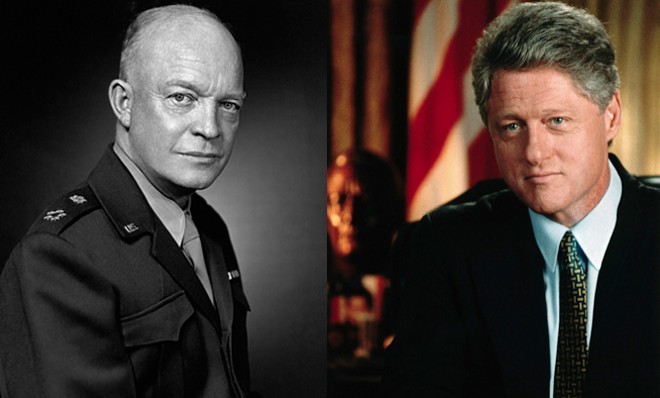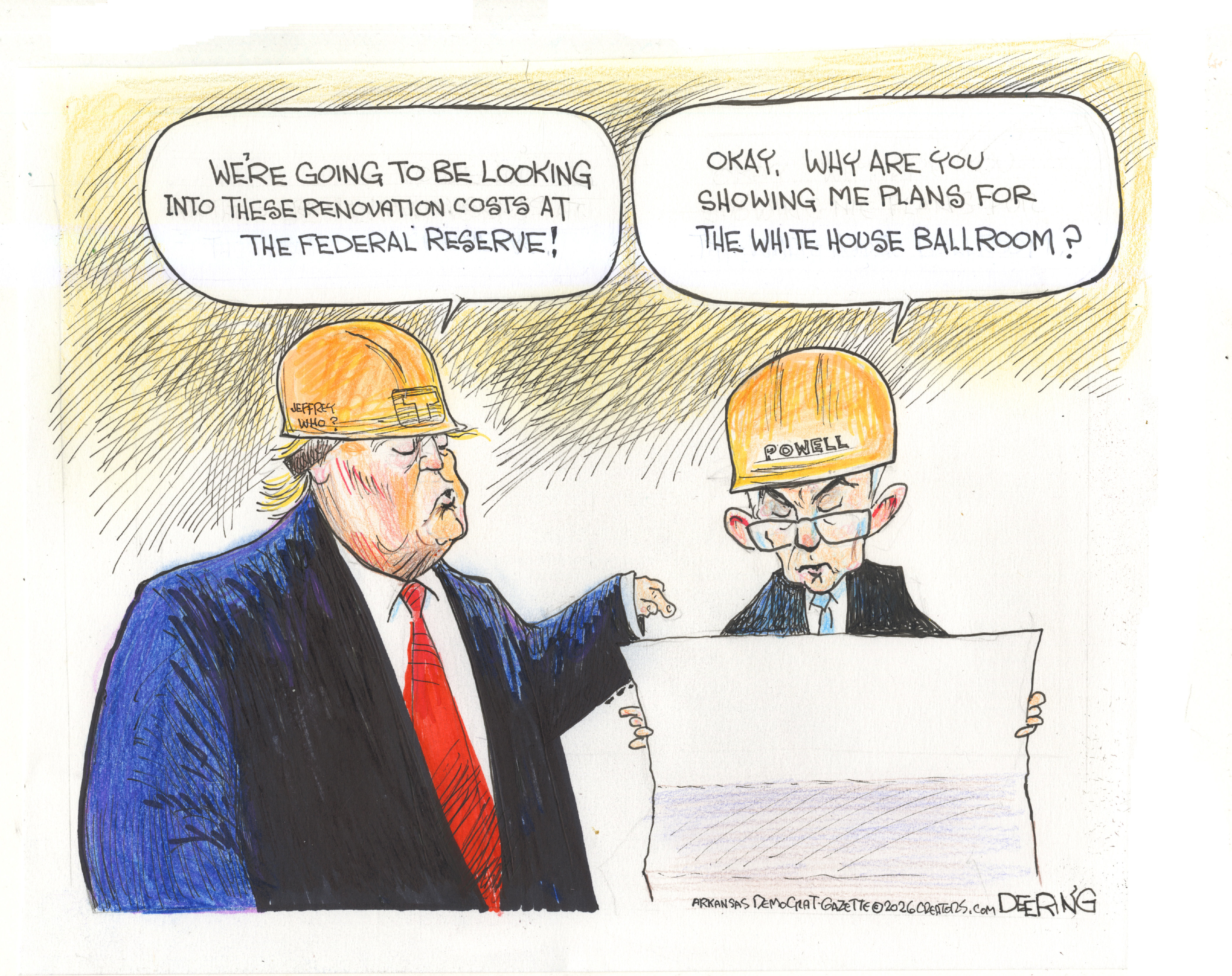Republicans love the '50s, while Democrats prefer the '90s
Even time travel is partisan in America

This week, The Economist published a poll that provided some insights into Americans' time-travel preferences.
The question was, "Which decade of the 20th century would you most like to go back to?"
Turns out that Republicans "preferred the morally uncomplicated 1950s," while Democrats "tended to opt for Bill Clinton's 1990s." (Barely anyone wanted to visit the 1930s, presumably because Hoovervilles don't make for great vacation destinations.)
The Week
Escape your echo chamber. Get the facts behind the news, plus analysis from multiple perspectives.

Sign up for The Week's Free Newsletters
From our morning news briefing to a weekly Good News Newsletter, get the best of The Week delivered directly to your inbox.
From our morning news briefing to a weekly Good News Newsletter, get the best of The Week delivered directly to your inbox.
So why do Democrats want to return to the '90s, while Republicans want to make like Marty McFly?
If IFC's Portlandia is to be believed, the 1990s were a hipster paradise, currently preserved in the cultural amber that is Portland:
The '90s were the source of some of our most reliable liberal stereotypes: The coffee snob, the skateboarding slacker, the gratuitous liberal arts major — none of which are mutually exclusive.
Perhaps more important to progressives, it was a time when the country had a booming economy under a Democratic president.
A free daily email with the biggest news stories of the day – and the best features from TheWeek.com
Former President Bill Clinton remains as popular with liberals as ever. Last year, right before the Democratic National Convention in September, 90 percent of Democrats had a favorable impression of Clinton, compared to only 44 percent of Republicans, according to a Gallup poll.
The 1950s, on the other hand, was the time of Dwight D. Eisenhower, a Republican. It was also the decade that William F. Buckley founded the National Review.
Last year, conservative columnist Jonah Goldberg used that publication to complain that liberals constantly cited the 1950s as the "belle époque of reasonable conservatism," mainly as a way of disparaging today's GOP.
The Economist poll, however, could indicate that conservatives really do think of the 1950s as a golden age, an era marked by post-war economic expansion and American ascendancy on the global stage, all of which preceded Vietnam, the sexual revolution, and the race riots of the '60s.
Of course, the results could have less to do with political preferences than with simple demographics and good old nostalgia. The poll showed that the 1950s just so happened be the most popular decade for people over 65 years old, an age group that tends to skew Republican.
And the demographic that most loved the '90s? You guessed it: Millennials.
Keith Wagstaff is a staff writer at TheWeek.com covering politics and current events. He has previously written for such publications as TIME, Details, VICE, and the Village Voice.
-
 Political cartoons for January 17
Political cartoons for January 17Cartoons Saturday’s political cartoons include hard hats, compliance, and more
-
 Ultimate pasta alla Norma
Ultimate pasta alla NormaThe Week Recommends White miso and eggplant enrich the flavour of this classic pasta dish
-
 Death in Minneapolis: a shooting dividing the US
Death in Minneapolis: a shooting dividing the USIn the Spotlight Federal response to Renee Good’s shooting suggest priority is ‘vilifying Trump’s perceived enemies rather than informing the public’
-
 The billionaires’ wealth tax: a catastrophe for California?
The billionaires’ wealth tax: a catastrophe for California?Talking Point Peter Thiel and Larry Page preparing to change state residency
-
 Bari Weiss’ ‘60 Minutes’ scandal is about more than one report
Bari Weiss’ ‘60 Minutes’ scandal is about more than one reportIN THE SPOTLIGHT By blocking an approved segment on a controversial prison holding US deportees in El Salvador, the editor-in-chief of CBS News has become the main story
-
 Has Zohran Mamdani shown the Democrats how to win again?
Has Zohran Mamdani shown the Democrats how to win again?Today’s Big Question New York City mayoral election touted as victory for left-wing populists but moderate centrist wins elsewhere present more complex path for Democratic Party
-
 Millions turn out for anti-Trump ‘No Kings’ rallies
Millions turn out for anti-Trump ‘No Kings’ ralliesSpeed Read An estimated 7 million people participated, 2 million more than at the first ‘No Kings’ protest in June
-
 Ghislaine Maxwell: angling for a Trump pardon
Ghislaine Maxwell: angling for a Trump pardonTalking Point Convicted sex trafficker's testimony could shed new light on president's links to Jeffrey Epstein
-
 The last words and final moments of 40 presidents
The last words and final moments of 40 presidentsThe Explainer Some are eloquent quotes worthy of the holders of the highest office in the nation, and others... aren't
-
 The JFK files: the truth at last?
The JFK files: the truth at last?In The Spotlight More than 64,000 previously classified documents relating the 1963 assassination of John F. Kennedy have been released by the Trump administration
-
 'Seriously, not literally': how should the world take Donald Trump?
'Seriously, not literally': how should the world take Donald Trump?Today's big question White House rhetoric and reality look likely to become increasingly blurred